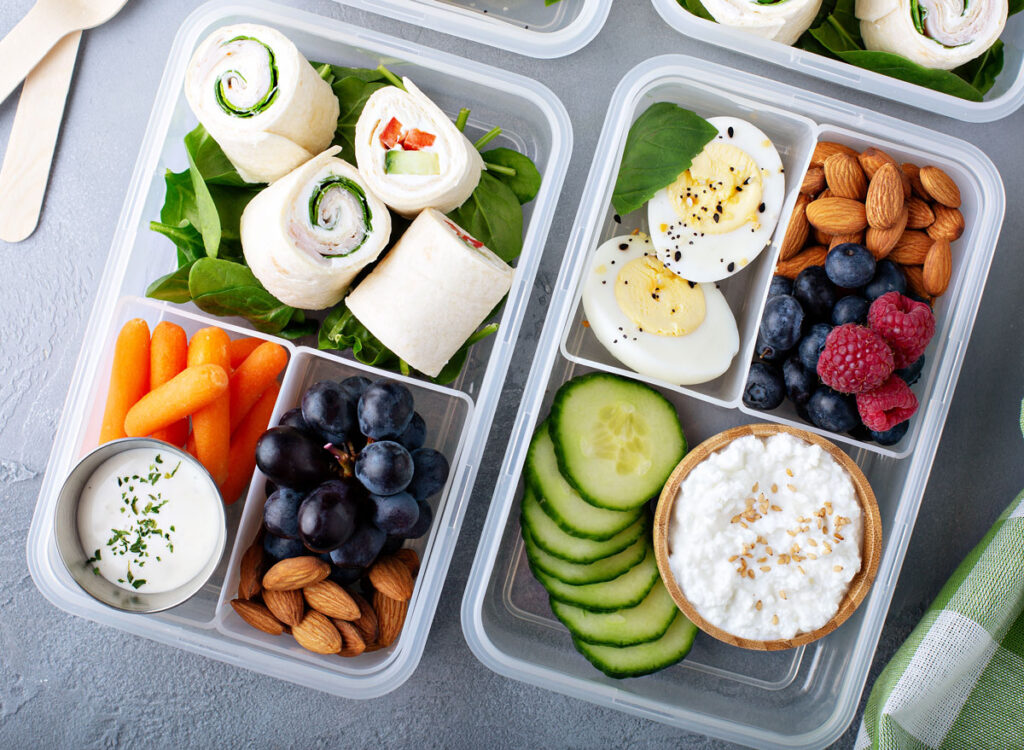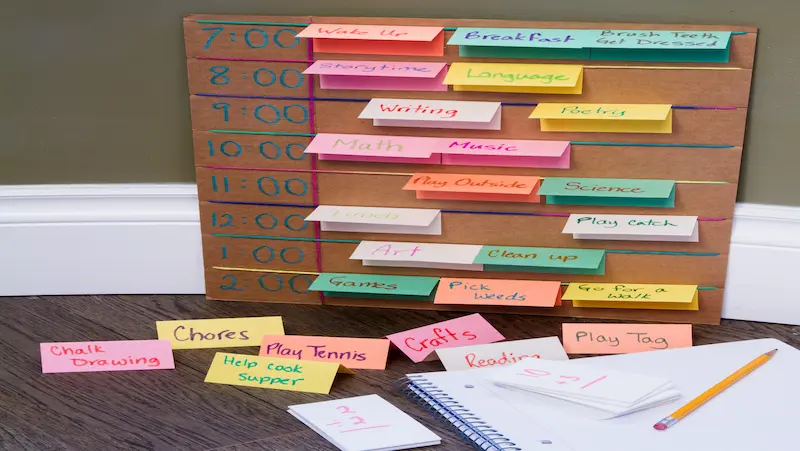In the fast-paced world of education, students often find themselves juggling multiple responsibilities, from coursework to extracurricular activities and social engagements. In this comprehensive guide, we will delve into the essential habits that can transform a student’s life, helping them navigate challenges with confidence and achieve their full potential.
Table of contents
- Introduction
- Building a Strong Foundation
- Cultivating Effective Study Habits
- Healthy Lifestyle Habits
- Emotional Well-being and Stress Management
- Developing Reading and Writing Habits
- Financial Habits for Students
- Networking and Social Skills
- Time Management for Co-curricular Activities
- Developing a Growth Mindset
- Effective Exam Preparation
- Conclusion
- Frequently Asked Questions
Introduction
Developing habits is a fundamental aspect of human nature. Habits streamline actions and decisions, conserving mental energy for more critical tasks. The key to thriving in this demanding environment lies in cultivating effective habits that not only enhance academic performance but also foster personal growth and well-being. For students, habits can mean the difference between chaos and structured success. They provide a framework for achieving goals, building resilience, and nurturing holistic growth.
How Habits Can Transform Student Life
Habits wield immense power in shaping a student’s journey. When consistently practiced, positive habits can:
- Enhance Focus and Productivity: Habits minimize distractions and create a conducive environment for focused studying, resulting in improved productivity.
- Boost Time Management: Efficient time management habits empower students to allocate time wisely, striking a balance between academics, extracurriculars, and personal life.
- Reduce Stress: Well-structured habits alleviate stress by promoting a sense of control and predictability, enabling students to handle challenges with composure.
- Facilitate Personal Growth: Positive habits instill discipline, resilience, and determination, nurturing personal growth beyond academic realms.

Building a Strong Foundation
- Setting Clear Goals and Objectives
Goal-setting provides direction and purpose. By defining short-term and long-term objectives, students can channel their efforts toward meaningful achievements.
- Prioritizing and Time Management
Time is a finite resource. Effective time management habits involve prioritizing tasks, creating schedules, and adhering to deadlines, resulting in efficient use of time.
- Creating a Productive Study Space
A dedicated study space with minimal distractions is crucial for optimal learning. Designing an organized and inspiring study environment promotes focus and retention.
Cultivating Effective Study Habits
Active learning engages students through participation, discussions, and problem-solving, enhancing comprehension and retention of complex subjects.
Effective note-taking condenses information for easy review. Techniques such as summarizing, visual mapping, and highlighting key points aid in information retention.
The Pomodoro Technique, a time management method, involves focused work intervals followed by short breaks. This technique enhances concentration and combats burnout.
Healthy Lifestyle Habits
Balancing Sleep and Academic Life
Adequate sleep is vital for cognitive function and overall health. Establishing a consistent sleep schedule improves concentration, memory, and emotional well-being.
Importance of Regular Exercise for Students
Physical activities and outdoor activities for kids boosts mood, cognitive function, and energy levels. Incorporating exercise into daily routines enhances both mental and physical well-being.
Nutrition and Brain Performance
A balanced diet rich in nutrients fuels brain function. Nutritional habits that include whole foods, hydration, and regular meals contribute to cognitive vitality.

Emotional Well-being and Stress Management
Coping with Exam Anxiety and Stress
Stress and anxiety are common among students. Stress management for kids, the technique including deep breathing, progressive muscle relaxation, and reframing negative thoughts, promote emotional well-being.
Mindfulness and Meditation for Students
Practicing meditation and mindfulness activities for kids cultivates self-awareness, reduces stress, and enhances focus, fostering a positive mindset.
Seeking Support: Friends, Family, and Counseling
Strong social connections provide emotional support. Students should be encouraged to seek help from friends, family, or professional counseling when needed.
Developing Reading and Writing Habits
- Effective Reading Strategies for Students:
Find good books for kids enhance your reading experience and comprehension by employing effective strategies. Skim through the text before diving in to get an overview. Highlight key points and make margin notes to engage with the material actively. Break down complex passages into smaller sections for better understanding. Summarize each section in your own words to reinforce comprehension.
- Active Note-Taking for Reading:
As you read, jot down key takeaways, questions, and insights. Organize your notes by chapter or topic, making them easier to review later. Summarize each section in concise bullet points to create a quick reference for future studying.
- Enhancing Writing Skills through Practice:
Regular writing practice is essential for honing your writing skills. Set aside dedicated time for writing exercises, essays, or journaling. Experiment with different writing styles and genres to broaden your expressive abilities. Don’t shy away from seeking feedback to identify areas for improvement.
- Crafting Effective Outlines:
Before writing, create a detailed outline of your piece. Break down your content into sections or paragraphs, each with a clear purpose. An outline helps maintain a logical flow and ensures you cover all necessary points in your writing.
- Editing and Proofreading for Polished Work:
Writing isn’t just about putting words on paper; editing is equally vital. Review your work for clarity, coherence, and grammar errors. Take breaks between writing and editing sessions to maintain a fresh perspective. Consider reading your work aloud to catch awkward phrasing or typos. Peer reviews can provide valuable insights and help you refine your writing further.

Financial Habits for Students
- Budgeting and Financial Planning:
Give the basic financial literacy for students. Create a detailed budget that outlines your income, expenses, and savings goals. Categorize your spending into essentials (like rent, groceries, and utilities) and discretionary items (entertainment, dining out). Monitor your spending regularly and make adjustments as needed to ensure you’re living within your means and saving for your future.
- Avoiding Debt Traps and Impulse Spending:
Resist the allure of credit cards for unnecessary purchases. Only use credit when you can pay off the balance in full each month. Avoid accumulating high-interest debt that can lead to financial strain. When faced with impulse spending urges, employ the “24-hour rule” – wait a day before making non-essential purchases to assess whether it’s a genuine need or a fleeting desire.
- Building an Emergency Fund:
Prioritize setting aside a portion of your income for an emergency fund. This fund acts as a safety net for unexpected expenses like medical bills or car repairs. Having a financial cushion can prevent you from falling into debt during challenging times.
- Comparing Prices and Seeking Discounts:
Practice mindful spending by comparing prices before making significant purchases. Look for discounts, coupons, and student deals to make your money go further. Online tools and apps can help you find the best prices and offers, allowing you to save without sacrificing quality.
- Investing in Financial Literacy:
Take the time to educate yourself about personal finance. Attend workshops, read books, or follow reputable financial blogs to improve your financial literacy. Understanding concepts like compound interest, investment options, and retirement planning empowers you to make informed decisions for your financial future.
Networking and Social Skills
The Importance of Networking for Students
Networking opens doors to opportunities. Developing interpersonal skills and expanding social circles are invaluable assets for personal and professional growth.
Building Meaningful Connections on Campus
Actively participating in clubs, events, and group activities fosters meaningful relationships, creating a sense of belonging within the campus community.
Navigating Social Settings and Events
Social confidence is essential for networking success. Students can cultivate effective communication and etiquette skills through practice and self-awareness.
Time Management for Co-curricular Activities
Balancing Academics and Extracurriculars
Engaging in co-curricular activities enriches student experiences. Effective time management ensures that academics remain a priority while exploring passions.
Maximizing the Benefits of Co-curricular Involvement
Co-curricular activities offer skill development and personal growth. Habitual involvement allows students to derive maximum value from these opportunities.

Saying No: Setting Boundaries for a Balanced Life
While involvement is crucial, setting limits is equally important. Learning to say no to excessive commitments preserves energy and prevents burnout.
Developing a Growth Mindset
Embracing Challenges and Failures
A growth mindset views challenges and failures as opportunities for learning and improvement. Embracing setbacks fosters resilience and perseverance.
The Power of Positive Self-Talk
Self-talk influences beliefs and actions. Positive affirmations and self-encouragement cultivate self-confidence and drive.
Learning from Mistakes and Moving Forward
Mistakes are stepping stones to success. Analyzing errors, seeking solutions, and applying lessons learned facilitate continuous growth.
Effective Exam Preparation
1. Developing a Study Schedule for Exams:
Creating a structured study schedule is paramount for effective exam preparation. Allocate specific time slots for each subject, ensuring balanced coverage. Break study sessions into manageable chunks with short breaks to maintain focus and prevent burnout. Regular review of previously studied material keeps concepts fresh in your mind.
2. Setting Clear Goals and Objectives:
Define clear goals for each study session and for the overall preparation. Establish achievable objectives, such as completing a certain number of practice questions or mastering specific topics. Setting goals provides direction and motivation, helping you track your progress and stay on track.
3. Test-Taking Strategies and Techniques:
Mastering test-taking strategies is crucial for performing well on exams. Practice time management by simulating exam conditions during practice tests. Prioritize questions, focusing on the ones you know well first and returning to challenging ones later. Use techniques like process of elimination, educated guessing, and underlining key information to enhance your test-taking efficiency.
4. Active Learning and Engaging Techniques:
Passive reading can be ineffective for retention. Opt for active learning techniques like summarizing chapters in your own words, teaching concepts to a study partner, or creating flashcards. Engaging with the material through discussions and practice problems helps solidify your understanding and recall.

5. Minimize Stress with Relaxation Techniques:
Managing exam-related stress is crucial for optimal performance. Incorporate relaxation techniques such as deep breathing, meditation, or short walks into your study routine. These practices reduce anxiety, enhance focus, and improve overall well-being, ensuring you’re mentally prepared for the challenges of exam day.
Conclusion
In the journey of academic success and personal growth, habits serve as steadfast companions. These habits, when intentionally cultivated and practiced, have the potential to unlock a student’s true capabilities.
From effective study techniques to emotional well-being, financial responsibility, and personal development, the habits outlined in this guide are a blueprint for fulfilling and thriving student life. By incorporating these practices into their daily routines, students can embark on a transformative journey that paves the way for success in both their academic endeavors and their personal aspirations.
To get your hands on more educational and free resources on coding for kids, robotics for kids, financial education for kids, etc., do check out the BrightCHAMPS Page now!
To get your hands on more such educational and free resources, do check out the Brightchamps Blog Page now!
Frequently Asked Questions
A1. Habit formation varies, but it generally takes about 21 to 66 days for a habit to form.
A2. Yes, these habits can benefit academic performance across all grade levels by promoting discipline, organization, and effective learning strategies.
A3. No, multitasking often reduces efficiency and focus. It’s better to focus on one task at a time for better results.
A4. Practice relaxation techniques, adopt a positive mindset, and implement effective study strategies to reduce test anxiety and improve exam performance.
A5. Minimize distractions, create a dedicated study space, use the Pomodoro Technique, prioritize tasks, and get enough rest to enhance concentration and focus during study sessions.


 We are an army of educators and passionate learners from BrightChamps family, committed to providing free learning resources to kids, parents & students.
We are an army of educators and passionate learners from BrightChamps family, committed to providing free learning resources to kids, parents & students.










